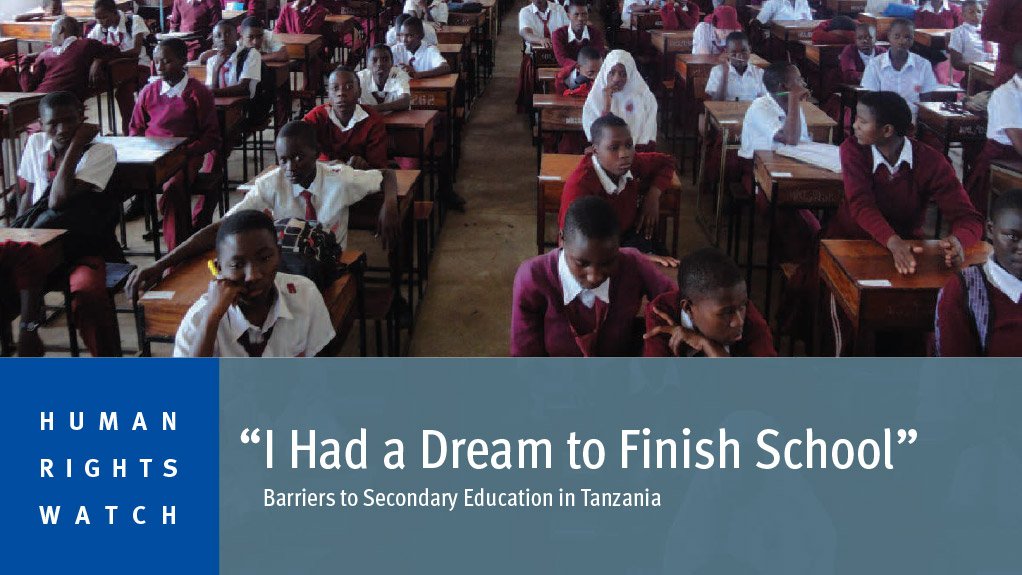- Barriers to Secondary Education in Tanzania6.40 MB
Like millions of adolescents in Tanzania, Imani, 20, from Mwanza, a region in northwestern Tanzania bordering Lake Victoria, wanted to study as much as she could so that she could graduate, find a job, and support herself and her family. From the age of 14, when she entered secondary school, she travelled more than an hour and a half every morning to get to school:
I was very tired by the time I got to school. I started arriving late all the time. When I would arrive late I would be punished.
Imani’s plans changed when she was only 16 years old. She was sexually abused by her private tutor, a secondary school teacher whom her parents hired to teach her during the weekend. When Imani discovered she was pregnant, she informed the tutor. He disappeared.
A nurse would carry out monthly pregnancy tests and check all girls at her school, but Imani skipped school on two occasions when the nurse conducted the tests. On the third month of her pregnancy, school officials found out she was pregnant. “My dream was shattered then,” she told Human Rights Watch. “I was expelled from school. I was expelled from [her sister’s] home, too.”
Like many adolescent girls in Tanzania, Imani tried many ways to get back into education once she had her baby, who, at the time she spoke to Human Rights Watch, was three years old:
I tried [to go back to school]. I went to every [preparatory] program, [and] I went to do the [Form II] national examination. I paid the examination fee to the teachers and teachers left with the money [and did not register her] so I didn’t do my exam. This was in 2015.
When Human Rights Watch interviewed her in January 2016, Imani had just started a computer literacy program set up by a small nongovernmental organisation in Mwanza to ensure more young women like her can find a way back into education.
Report by the Human Rights Watch
EMAIL THIS ARTICLE SAVE THIS ARTICLE ARTICLE ENQUIRY
To subscribe email subscriptions@creamermedia.co.za or click here
To advertise email advertising@creamermedia.co.za or click here











